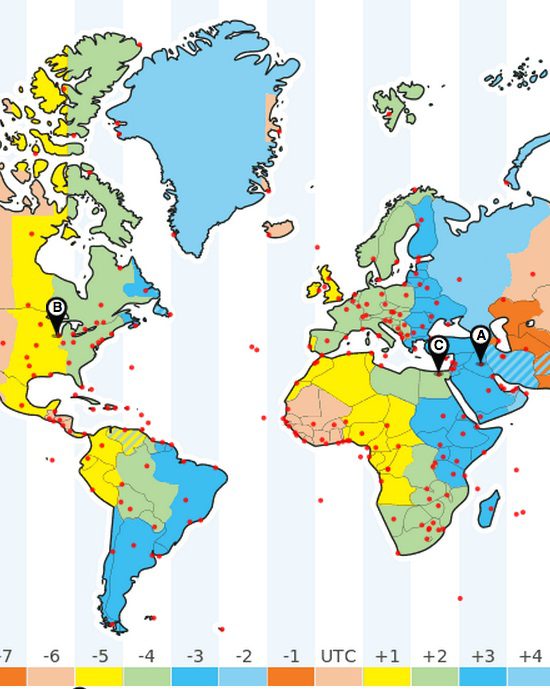Nicolae: The Rise of Antichrist; pp. 251-254
The first three volumes of the Left Behind series alternate between two point-of-view protagonists, Rayford Steele and Buck Williams. Chapter 12 ends with an unresolved puzzle for Buck, and so Chapter 13 begins by cutting back to Rayford’s POV and story line. That’s a good move by Jerry Jenkins — a good way of heightening the suspense he wanted to generate in Buck’s story.
Jenkins often shows a decent sense of rhythm when it comes to switching back and forth between these two points of view and these two story lines. But he often seems to forget that switching to the second story line requires that he has a second story line. Here, as throughout much of this book and the last one, we return to Rayford Steele’s perspective only to find that Rayford really doesn’t seem to be up to much lately. It’s another case in which Jenkins turns away from Buck’s POV for a good reason, but doesn’t supply much of a good reason for returning to Rayford’s POV.
What we find here, instead, is an odd little homily on the importance of prayer. The chapter begins, of course, with a phone call:
Rayford was tired of being awakened by the phone. However, few people in New Babylon outside of Carpathia and Fortunato ever called him. And they usually had the sense not to disturb him in the middle of the night. So, he decided, the ringing phone was either good news or bad news. Once chance out of two, in this day and age, wasn’t bad.
I can’t argue with the assessment that a ringing phone in the middle of the night is likely “either good news or bad news.” But it doesn’t follow that this presents the 50-50 odds of “one chance out of two.” This phone call isn’t just coming in the middle of the night, after all, but in the middle of the Great Tribulation — a “day and age” marked by relentless, ever-escalating wrath, woe, death and destruction.
It’s hard to imagine what “good news” might mean during the Great Tribulation. The schedule for the remaining five and a half years of human history is all predetermined and not a bit of it involves the potential for “good news.” Tim LaHaye’s vision of Revelation as “biblical prophecy” foretells seven seals of wrath, followed by seven trumpets of even worse wrath, followed by seven bowls of even wrathier wrath to come. The prophecy doesn’t suggest that these will be interspersed with seven Saturdays of sunshine or seven puppies of joy, so the ratio or likelihood of good news vs. bad news seems far more lopsided than one chance out of two.
He picked up the phone. “Steele,” he said.
It was Amanda. …
Oh, right. Mrs. Steele. She’s back in Chicago, so it’s maybe a little odd that she ranks below Carpathia and Fortunato on the list of people he expected to call.
“Oh, Rayford, I know it’s the middle of the night there, and I’m sorry to wake you. It’s just that we’ve had a little excitement here, and we want to know if you know anything. … We got the strangest call from Loretta at the church. She said she was just working there alone, taking a few phone calls. She said she just had an overwhelming urge to pray for Buck.”
“For Buck?”
“Yes. She said she was so overcome with the emotion of it that she quickly stood up from her chair. She said she thought that made her lightheaded, but something made her fall to her knees. Once she was kneeling, she realized she wasn’t dizzy but was just praying earnestly for Buck.”
They discuss “this premonition, or whatever it was, of Loretta’s” for another page or so before, finally, Amanda puts her on the line to speak to Rayford.
Loretta indeed sounded shaken. “Captain Steele, I’m so sorry ’bout troubling you at this time of the night. What is it, goin’ on like three o’clock over there?”
This is one of the fun things about Loretta’s rare appearances in this story — we never know what kind of accent or dialect to expect from her.
“Yes, ma’am, but it’s all right.”
“No, it’s not all right. There’s no reason to raise you out of a sound sleep. But sir, God told me to pray for that boy, I just know it.”
Rayford agrees. This sudden, overwhelming compulsion to pray for Buck’s safety must be a direct message from God.
“God seems to be working in much more direct and dramatic ways all the time,” he says.
I can’t argue with that either. “More direct and dramatic” seems like a good description of divine behavior in the post-Rapture world. The Rapture itself was certainly direct and dramatic, and it seems to have introduced an era of explicit, obvious divine intervention. (See, for example, the bodily presence of Moses and Elijah, who breathe fire and can stop bullets with a wave of their hands.) That accords with LaHaye’s premillennial dispensationalist theology, which divides history into a set of different “dispensations” or ages in which God interacts differently with the world. Dispensationalism teaches that God will behave very differently — “more direct and dramatic” — in the coming Great Tribulation than God does now during what they call the “Church Age.”
The problem here, though, is that the little vignette in these pages about Loretta’s premonition is based on the idea that God works this way now, today — directly and dramatically in your life, dear Christian Left Behind fan. That’s the whole point of this section, it’s a practical lesson for readers — an admonition to always be on the lookout for any sudden urge to pray, and to regard such urges as a message from God.
The moral of the story gets slammed home in this exchange at the very end:
“Loretta, would you do me a favor?”
“After gettin’ you up in the middle of the night? You name it.”
“If the Lord prompts you to pray for me, would you do it with all your might?”
“‘Course I will. You know that. I hope you’re not just bein’ funny now.”
“I’ve never been more serious.”
This, the authors are saying, is how the world works — not just in some miracle-ridden future dispensation, but here and now in the lives of the American Christians reading these novels. The Lord will sometimes prompt you to pray. Do so with all your might and miracles will follow.
The miracle, in this case, was Buck and Tsion’s miraculous safe crossing of the border out of Israel.
Here in the pages of Nicolae, this raises all sorts of questions involving theology, metaphysics, physics, cause, effect, and time.

Buck’s whole plan for getting across the border, remember, was to put his fate in God’s hands and pray for a miracle. God answered his prayers and supplied that miracle. But it turns out this wasn’t just an answer to the prayers of Buck and Tsion, but also to the prayers of Loretta, Amanda and Chloe.
Did God require those prayers? Or, more pointedly, would God have been able to provide that miracle without those prayers? Apparently not. At least God seems to think not, because it was God who prompted Loretta (and thus also Amanda and Chloe) to drop everything and drop to their knees to pray for Buck.
What would have happened if Loretta had shrugged off this prompting to pray? Would Buck and Tsion now be prisoners?
What if Loretta had decided to pray not just for Buck, but also for poor Michael (Row the Boat A) Shorosh? He’s already predestined to be one of the 144,000 martyrs whose fate is indelibly inked in prophecy. God has decreed that he is doomed. Prayers that contradict that which has been prophesied must be futile in this prophecy-driven story. Are such futile prayers permissible? Are they a kind of rebellion and, thus, a kind of sin?
It seems the lesson here is not just “If the Lord prompts you to pray … do it with all your might,” but also “Don’t pray unless the Lord prompts you to.”
The bigger puzzle here is the apparent closed circle of divine intervention prompted by human intercession prompted by divine intervention. This is like one of those time-loop paradoxes from a time-travel sci-fi story. God intervenes to compel Loretta to pray for God to intervene to save Buck. Was someone else praying for God to compel Loretta to pray? And, if so, was that person praying on their own, or were they also responding to divine prompting? How many loops and layers are at work here before we arrive at a place where either God or a human is acting on their own volition?
I’m not completely sure, but this might not just be like a time-travel story — it may actually be a time-travel story. The chronology here is too muddled for us to be sure that Loretta’s premonition to pray for Buck came before he arrived at the border crossing. It’s possible that God told her to tell God to help Buck after God had already done so.
But let’s assume that Loretta was already on her knees in earnest prayer before the two border guards approached Buck’s school bus. We’re still going to need some time travel to accept the authors’ insistence that Loretta’s compulsory prayer was efficacious. She asked God to ensure Buck’s safety, and God did so, but the means by which God did so — **SPOILER ALERT** — was the younger border guard, Anis, who turns out to be a secret convert to Christianity and a disciple of ex-rabbi Tsion Ben-Judah.
“I don’t know if the young Anis was an angel or a man, but he was sent from God,” Tsion says to Buck later.
But in order for God to pull this miracle out of the chosen Anis, God first had to arrange for the young man’s conversion and his assignment to this border post. The wheels would have to have been set in motion long before either Loretta or Buck prayed. The answer to their prayers was the effect of causes that had to have begun long before they ever started praying.
To be fair, this problem of the efficacy of prayer in relation to cause and effect isn’t unique to LaHaye and Jenkins. Christians have been wrestling with that paradoxical question since at least Augustine’s time. It’s actually a fascinating subject if you enjoy that sort of speculation. Some have offered theories that involve the universe as a kind of Newtonian machine expertly manipulated by an omniscient being who can account for all the variables. Other theories are as mind-bending and fantastical as string theory or spooky action. (I have discovered a truly marvelous explanation of this, which this margin is too narrow to contain.)
Here in these books, though, prayer is often presented as a simple mechanical process of cause and effect. That the problem of all these complicating questions and chronologies particularly acute. And it makes the authors’ failure to acknowledge them — let alone resolve them — all the more glaring.
I wonder how the fans of these books respond to the strange little lesson on prayer they’ve been given in these pages. I suppose they probably just focus on Rayford’s summary of the moral of the story — “If the Lord prompts you to pray … do it with all your might” — and then, for a little while afterward, they seek to be more attuned to such prompting.
That’s hard to sustain, though, because it’s hard to know what it means. What does such prompting feel like? Where is that feeling located? Does it involve paying more attention to our seemingly stray thoughts? And if so, how does one do that? There seems to be a fine line between the kind of heightened spiritual awareness being advised here and something that looks and feels more like neurotic anxiety.
















